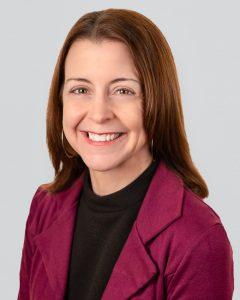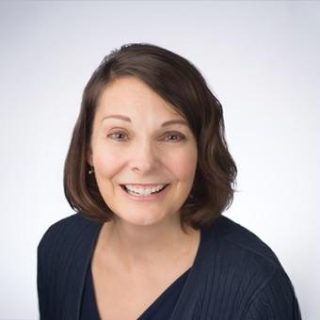FOCUS
The ultimate adaptive challenge
By Suzanne Bouffard
Categories: Career pathways, Coaching, Collaboration, Continuous improvement, Implementation, LeadershipJune 2020
Vol. 41, No. 3
Ellie Drago-Severson and Mary Antón have known each other for more than 20 years and have worked together in different capacities to support educators through the lens of adult development. They recently spoke with The Learning Professional about how coaching can help leaders at all levels navigate the COVID-19 crisis and grow in ways that will help schools and students for years to come.
Drago-Severson is a teacher, consultant, coach, facilitator, author, researcher, and developmental psychologist. She is professor of education leadership and adult learning and leadership at Teachers College, Columbia University, where she also directs the Ph.D. program in education leadership and the Leadership Institute for School Change. Her recent research focuses on the intersection of internal, developmental capacities, and leadership on behalf of social justice.
Antón is a veteran school principal, equity coach with the Reimagining Integration: Diverse and Equitable Schools (RIDES) project at Harvard Graduate School of Education, and the founder of Learning • Leading • Becoming Equity Leadership Consulting. Her work focuses on supporting leaders of color and on systemic school change geared toward dismantling racism.
Q: Why is coaching so important as we all navigate the COVID-19 crisis?
Ellie Drago-Severson: One of the great gifts of coaching is to be in the position of caring for others. What a privilege it is to be present with educators right now and hold space to help them manage the complexity, ambiguity, and fear we are all experiencing.
Listening is the essence of coaching, but it’s not enough, by any stretch of the imagination. An important part of coaching — always, but especially now — is listening to how people are making meaning of their experience and differentiating the support we provide based on both their ways of orienting to the world and their current circumstances.
Context certainly matters — and so do our internal capacities. This COVID-19 crisis is the ultimate adaptive challenge for all of us. Everyone is struggling to make sense of it in his or her own way.
Q: How can understanding adult development help coaches support educators during this crisis?
Drago-Severson: It’s essential right now to recognize the fundamentally different ways this crisis is affecting different people. The burden and the resources aren’t the same for everyone. Coaching should look and feel different based on these different, urgent needs.
Applying a developmental lens can help us to be present for each person in powerful and meaningful ways. For example, a developmental framework helps us understand that, according to research, there are three most common ways of knowing among adults. These are: the instrumental, socializing, and self-authoring ways of knowing.
Each way of knowing has developmental strengths and also areas for growth, or what I call growing edges. Using a developmental framework, we can meet people where they are in their meaning-making and offer appropriate supports and challenges. These challenges, or stretches, can help them grow to better manage the complexity and ambiguity of work and life — and of the current COVID crisis.
Instrumental knowers orient to the world in a very concrete way and are most comfortable when following what they see as the “right” rules and processes. In this crisis, they will have a need for tangible resources and clear guidance about how to proceed.
Socializing knowers orient to the world in a relational way and tend to value and need the approval of teammates and authorities. These knowers adopt external authorities’ assessments, opinions, and values as their own. For them, it’s important to have a supervisor or valued colleague’s permission to do something. In addition, leaders extending gratitude, compassion, and care for them is especially important right now.
Self-authoring knowers have the internal capacity to generate an ideology and a set of standards that govern how they behave, how they make decisions, and what actions they take. While they are keen to learn from others’ perspectives and consider them when making decisions — especially in a crisis situation — in the end, they will look inside themselves to discern what to do. They may also be readily poised to help and support others, and they do best when they have opportunities to share their expertise and ideas.
It’s important for coaches and leaders to tap into that. But now can also be a moment to help self-authoring knowers look beyond their own expertise toward some of the more systemic challenges and interdependencies at hand.
Mary Antón: While I was a principal for 18 years, I used this developmental framework for supporting teachers as the foundation of my practice. Now, as a principal coach focused on equity and inclusion, I stress its value to other leaders. Understanding the developmental capacities of teachers is a critical piece for principals to intentionally plan spaces in which teachers experience a sense of belongingness, connection, and potential for growth.
One of my most important goals for school leaders is developing teacher leadership. When leaders are intentional, teachers grow. And when teachers grow, they create growth spaces for children. Now is a time for growth for everyone. All of us, whether we are a coach, principal, teacher, or other role, can encourage others to learn and grow as we get through this together.
Q: How does physical distancing affect the way we support one another?
Antón: This crisis hits our connections to one another. We need to ask: What spaces can we create now to connect people and hold people so they can talk about how they are managing? And how do we do that in a developmental way that is responsive to different needs?
When this crisis started, I looked at what was needed for leaders, and I started assembling online groups for leaders from different parts of the U.S. to come together and share thoughts and ideas. These groups are holding spaces so leaders can talk with and learn from people who might have ideas that are different from them.
We have an opportunity right now to create spaces with a lot of fluidity in them. For example, you can set up voluntary meetings around specific topics of interest, where people can drop in, almost like pick-up basketball games or unconferences. Another example I’ve seen is a principal organizing virtual coffee breaks. In these informal meetings, people are invited to come, but there is no requirement or expectation. They have been very popular; the school’s teachers union representatives even emailed the principal and asked that the events continue. Opportunities like these can set up certainty in a time of uncertainty.
Drago-Severson: What we shouldn’t lose from this time is that when people are coming together in virtual groups, sometimes from across schools and outside of their usual networks, they’re making some really important shifts in the sources of information and ideas. Stepping outside of their own schools or systems has allowed people to experience ideas they’ve never experienced before. People I have the honor of coaching are feeling incredibly fragile and vulnerable right now, and those seeds of vulnerability and courage can help us come together in new ways.
Antón: Another thing that’s different, and positive, right now is that when you’re on a video call, you’re letting someone into your home. When you’re in each other’s homes, you begin to see each other’s lives in different ways. You connect when they are in their most comfortable location, where they feel most held.
There is a level of authenticity around how people bring their whole selves when sitting in their bedroom or home office or on their deck. I see it shifting and changing some essential relationships, allowing people to feel a little safer and more connected in ways that seem completely counterintuitive.
Working with principals, I’m thinking about how do we capture and keep those essential relationships and opportunities for belonging going forward? What have we learned about people who are different from us, and how can we use that to rethink some of our structures?
Q: What other learning opportunities do you see right now?
Drago-Severson: I’ve been thinking a lot lately about how many people interpret the Chinese word for “crisis” as the combination of the symbols for danger and opportunity. Over the past several weeks, I’ve seen that leaders, in response to the very real dangers and inequities of the moment, are implementing a lot of promising adaptations of the four pillar practices for adult development and collaboration I developed: teaming, providing leadership roles, collegial inquiry (engaging in meaningful conversation), and mentoring or coaching. These are practices that bring people together, which feels especially important right now.
In terms of strategies, I encourage leaders to start team meetings with quick, fun, and voluntary check-ins, using a pass-or-play approach to help everyone feel comfortable. I also encourage people to use surveys to bring peoples’ voices together in new ways. With teacher surveys or parent surveys, you can help leaders within and across different roles and organizational levels in the community understand the pulse of the community.
Antón: I’m also seeing people putting structures in place that are building leadership capacity. This is a time to encourage teachers who have a skill to share it. Someone who knows how to use the computer may be helping someone else, and this is a chance for her to become a leader.
As coaches and leaders, we should be thinking about: Whom could you encourage to do this and how? We should begin to build some of those pillar practices for helping people grow within their developmental stage, such as asking questions about what people are learning and trying. This can help people reimagine their roles and take roles that they might not have taken before.
Drago-Severson: One thing I have found fascinating in this new world is that people are becoming more willing to take leadership opportunities than they were at the beginning of the crisis. One principal told me that she invited her teachers to share what they are learning during staff meetings. After one week, only one teacher did so, but the next week, two other teachers offered to share, and it grew from there. People can become more comfortable if we create the conditions where it’s voluntary and it’s OK to say no or not right now.
It’s amazing what planting those seeds can do. One teacher last week told me, “Now I have a voice that matters.” She had never felt that way before. She’s a young teacher on a team with many senior teachers, and she didn’t always feel comfortable to share. But now she sees that they are valuing her technology knowledge, and it has been very affirming for her.
Q: Looking ahead to when school buildings reopen, what do you expect will be some of the most important coaching needs?
Antón: My coaching is primarily around equity and inclusion, so I’m very focused on that. I’ve been asking how people are supporting others in this time when we know there are lots of inequities, and that work will continue to be incredibly important. What can we learn and do now that will set up structures that will be likely to allow us to make some fundamental changes going forward? And then how can we keep those structures going?
Drago-Severson: Our work as coaches is about growing the growers. But when we come back together, it’s going to be about holding the holders. We’re going to have to hold each other in different ways. In my experience, people who are being coached are learning in new ways about how to hold other people. And if we can do that better when we come back together with real hugs, that’s what’s going to carry us into the future in new ways. The depth of our understanding about social justice, equity, and diversity of all kinds can help us create a new world in schools.

Suzanne Bouffard is senior vice president of communications and publications at Learning Forward. She is the editor of The Learning Professional, Learning Forward’s flagship publication. She also contributes to the Learning Forward blog and webinars. With a background in child development, she has a passion for making research and best practices accessible to educators, policymakers, and families. She has written for many national publications including The New York Times and the Atlantic, and previously worked as a writer and researcher at the Harvard Graduate School of Education. She has a Ph.D. in developmental psychology from Duke University and a B.A. from Wesleyan University. She loves working with authors to help them develop their ideas and voices for publication.
Categories: Career pathways, Coaching, Collaboration, Continuous improvement, Implementation, Leadership
Recent Issues
LEARNING TO PIVOT
August 2024
Sometimes new information and situations call for major change. This issue...
GLOBAL PERSPECTIVES
June 2024
What does professional learning look like around the world? This issue...
WHERE TECHNOLOGY CAN TAKE US
April 2024
Technology is both a topic and a tool for professional learning. This...
EVALUATING PROFESSIONAL LEARNING
February 2024
How do you know your professional learning is working? This issue digs...










